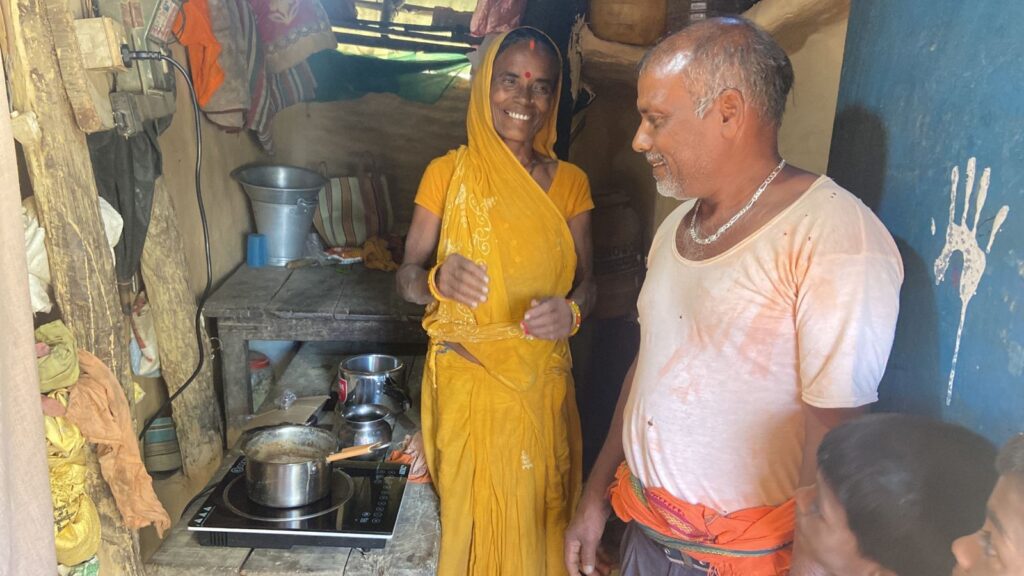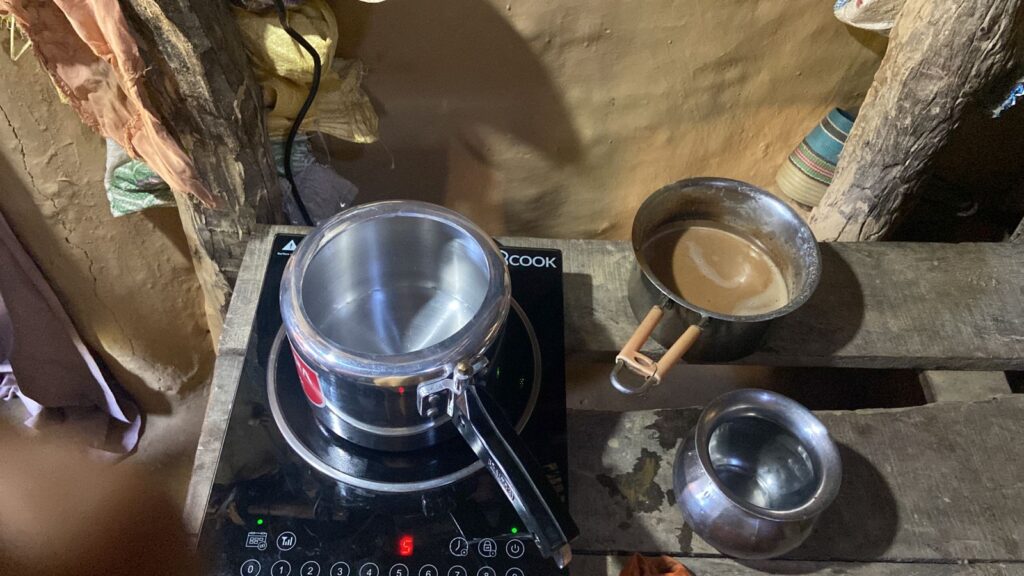CCA Helps Nepal Achieve Climate Goals Through Electric Cooking
Madhesh, Nepal’s smallest and most populated province, lies in the Himalayan foothills near the border with India. Nearly 70 percent of families there burn wood and cow dung in open fires or biomass stoves for their daily cooking.
The resulting air pollution makes cooking a leading cause of early mortality in Nepal. In addition to the direct health risks, women and children can spend a great deal of time doing the tedious work of collecting wood. More broadly, cooking this way is a significant source of pollutants like black carbon—soot particles with a climate-warming impact up to 1,500 times stronger than the effect of carbon dioxide.
 © Karuna Bajracharya / Clean Cooking Alliance
© Karuna Bajracharya / Clean Cooking Alliance
To address these challenges, the Government of Nepal (GoN) has committed to achieving universal access to clean cooking by 2030, including ensuring that 25 percent of households adopt electric cooking. The GoN has engaged the Clean Cooking Alliance (CCA) to help reach these goals. Building on a decade of collaboration with the GoN, CCA is kicking off an innovative project selling affordable electric cookstoves to 5,000 Nepalese households in Madhesh Province.
“CCA has worked hand in hand with us to drive clean cooking forward, which is an urgent necessity for our health and well-being and to reach our climate mitigation goals,” said Prof. Dr. Surendra Labh Karna, former Member of Nepal’s National Planning Committee. “This project is the culmination of data-driven research and development, and we are delighted with the leadership and convening power CCA has shown in this sector.”
The new project in Madhesh, implemented together with the Climate and Clean Air Coalition, the Berkeley Air Monitoring Group, and electric cooking provider ATEC, is deeply informed by CCA’s work in Nepal in recent years. This groundwork includes critical planning tools like the Energy Access Explorer—an interactive, open-data, geospatial platform run by the World Resources Institute, with whom CCA, the Alternative Energy Promotion Centre (AEPC), KTH Royal Institute of Technology, Kartoza, and Nepal Open University developed a clean cooking component.
“We are excited about this new breakthrough in our productive partnership with the Government of Nepal,” said Anobha Gurung, the director of CCA’s Nepal Project. “Clean cooking is at the center of climate solutions and the health and well-being of Nepalese people.”
[ Learn about the state of clean cooking in Nepal. ]
The government’s programs have already led to significant improvement in electricity access throughout the country. CCA is helping the GoN solidify its foundation for sustained use of clean cooking by addressing market and knowledge barriers affecting the adoption of electric appliances.
In 2022, for instance, in collaboration with CCA and AEPC, the GoN launched its Country Action Plan for Transforming the Cookstoves and Fuels Market. This plan provides an evidence-based roadmap to support Nepal’s energy access goals, especially those related to the promotion of electric cooking. It’s a critical component of Nepal’s efforts to boost energy independence and meet its commitments under the Paris Climate Agreement and its national achieving net zero by 2045. In a country where nearly all electricity comes from hydropower, electric cooking holds real potential for accelerating the transition to a renewably powered energy system.
Overcoming the price of clean cooking
One of the most significant challenges has been that many Nepalese households in Madhesh and elsewhere cannot afford the US$100 for a high quality electric cookstove.
However, new stoves produced for the Madhesh project have embedded data collection capabilities to monitor actual stove use. This technology helps carbon project developers calculate the level of emissions avoided and sell that reduction as a carbon offset. That financial credit is passed on to consumers in Nepal, reducing the retail price to about US$15.
 © Karuna Bajracharya / Clean Cooking Alliance
© Karuna Bajracharya / Clean Cooking Alliance
“We need to ensure reliable electricity, and easily accessible and affordable electric cookstoves for households so they have the incentives to buy and use them,” said CCA Country Representative Karuna Bajracharya.
CCA is dedicated to the long-term sustainability of the electric cookstove market in Nepal, including a viable supply chain and after sales services.
Much of this work began with a health demonstration project CCA completed in Nepal in 2019 to get a sense if households would be willing to switch to electric stoves. Families did switch, but only when the right pieces were in place, such as sufficient household wiring and breakers, an understanding of electricity payments, and a supply of cooking appliances at a price they could afford.
“This project was a great leap forward for us,” said Dr. Madhusudhan Adhikari, former Executive Director of AEPC. “It became clear that households would be willing to use clean cooking if there was a supply of devices that they could afford, available within a short distance to their village, that they could learn how to use effectively and safely. Now, with this new project, we are overcoming those barriers with the research and development support provided by CCA.”
The project found that families reduced their use of biomass and cooking gas following the purchase of an electric cookstove, and in doing so, reduced their overall household energy costs.
In the second part of the demonstration project, CCA examined the energy consumption associated with electric cookstoves, and found that most homes require basic electrical improvements. This highlighted the critical need for community-scale infrastructure, which the government is now developing in tandem with the electric appliance rollout.
“The CCA’s engagement in Nepal through evidence-based research has helped bring us to this point of fruition,” said Mr. Nawa Raj Dhakal, Executive Director of AEPC. “To catch up with the Government of Nepal’s goals on clean cooking, we need transformative initiatives on the clean cooking market to foster a more effective transition to clean energy and we look forward to continued collaboration with all the partners and stakeholders.”
